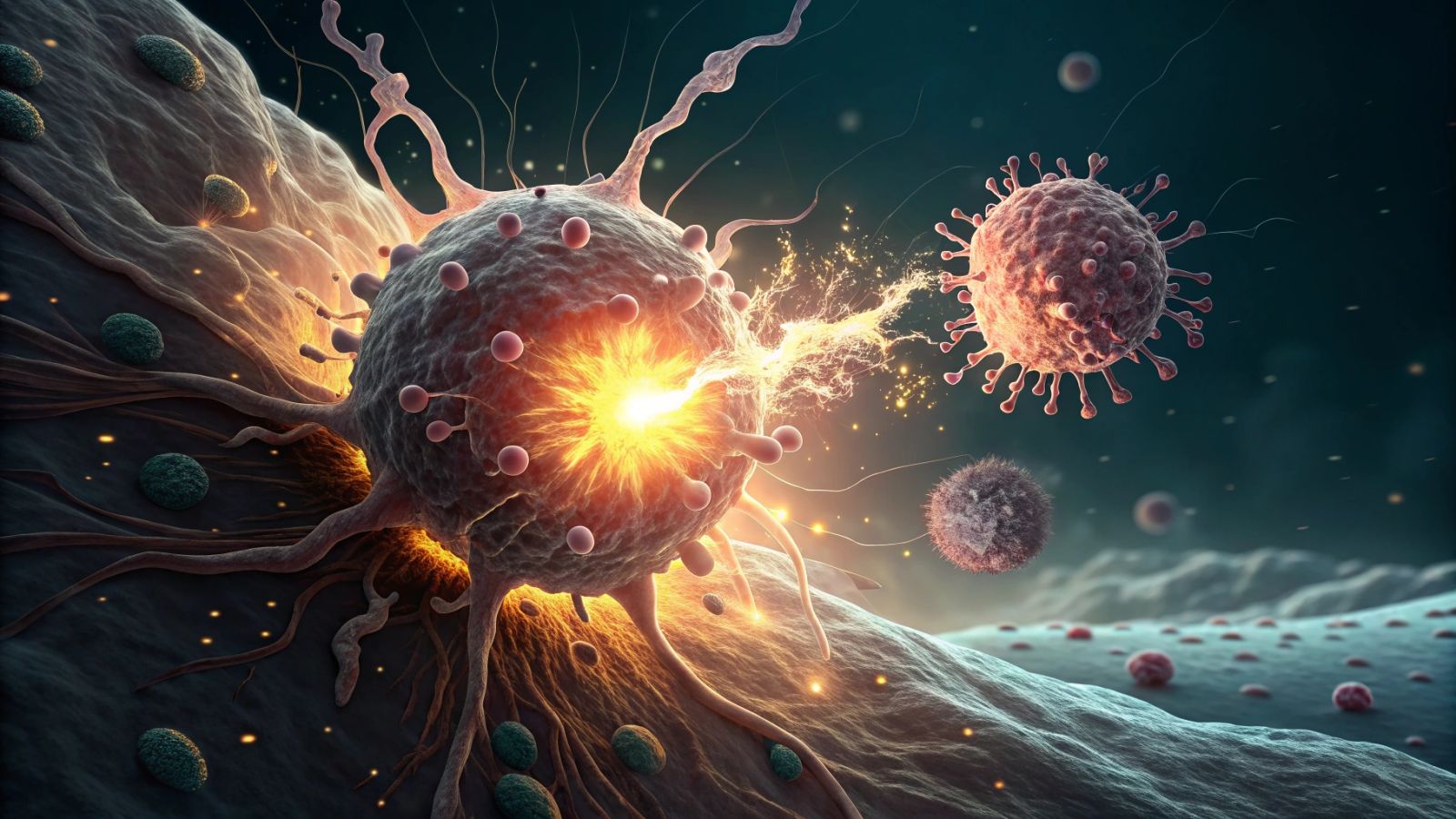Follow us on Google News (click on ☆)
In the fight against cancer, immunotherapy — which aims to boost the body's natural defenses — has seen remarkable growth. Most of these treatments rely on CD8 T lymphocytes, "killer cells" capable of eliminating diseased cells.

However, a team from the University of Geneva (UNIGE) has explored another avenue: CD4 T lymphocytes. Long considered mere helper cells, these lymphocytes saw their therapeutic potential relegated to the background. Yet scientists have discovered that these cells also possess a strong ability to destroy cancer cells while continuing to support other immune cells.
Using cell engineering techniques, the team managed to reprogram them to target a tumor marker present in many cancers, in both adults and children. These results, published in the journal Science Advances, pave the way for a faster therapeutic strategy applicable to a broader range of patients.
Traditionally considered helper cells, CD4 T lymphocytes produce molecules that support the action of other immune cells. They facilitate their functions, migration, or proliferation in the body.
Recent work by the team of Camilla Jandus, assistant professor in the Department of Pathology and Immunology at the UNIGE Faculty of Medicine's Center for Research on Inflammation and Translational Research Center in Onco-Hematology, shows that their role has been largely underestimated.
These cells effectively target not only melanoma but also lung, ovarian, sarcoma, and brain cancers, while sparing healthy cells.
In collaboration with the CHUV-UNIL Department of Oncology and the Lausanne branch of the Ludwig Institute for Cancer Research, UNIGE scientists studied the molecular characteristics of CD4 T lymphocytes taken from individuals with melanoma (a skin cancer). They identified a unique subset carrying a T-cell receptor (called TCR) capable of effectively recognizing an antigen specific to tumor cells: NY-ESO-1. This TCR was then isolated and artificially expressed in other CD4 T cells.
"We then assessed the effectiveness of these modified cells against cancer cells, both in vitro and in animal models," explains Camilla Jandus. "The results are impressive: they effectively target not only melanoma but also lung, ovarian, sarcoma, and brain cancers, while sparing healthy cells. This shows that CD4 T cells modified with the TCR can directly attack tumors, in addition to their helper role."
The major advantage of a widespread allele
The HLA system is a set of genes responsible for immune recognition. Each individual inherits different versions of these genes, called alleles. "They encode cell surface proteins, HLA molecules, which allow T cells to distinguish healthy cells from those infected by pathogens or tumor cells," the researcher explains.
"The effectiveness of T-cell therapies thus depends on the presence in patients of the specific HLA allele that presents the tumor antigen. However, the NY-ESO-1 antigen, recognized by our TCR, is presented by an allele carried by half of the population of European origin, compared to only 10–15% for other HLA alleles." This significantly increases the number of patients who could benefit, especially since the targeted antigen is expressed in many types of cancer.
Hope for adult and pediatric cancers
Camilla Jandus's team is currently preparing a first clinical trial of cell therapy based on modified CD4 T cells and TCR. The goal is to include different types of cancer expressing the NY-ESO-1 antigen. An HLA test will first verify the presence of the correct allele, then tumors will be analyzed to confirm antigen expression. CD4 T cells will then be extracted, modified in the lab to express the TCR, multiplied, and reinjected into patients.
But Camilla Jandus envisions an additional step: creating a bank of ready-to-use immune cells modified with TCR, sourced from healthy donors, which would save precious time, especially against aggressive cancers. This strategy could also open the door to treatments for currently incurable cancers, particularly in children: initial in vitro tests on pediatric neuroblastomas are promising.